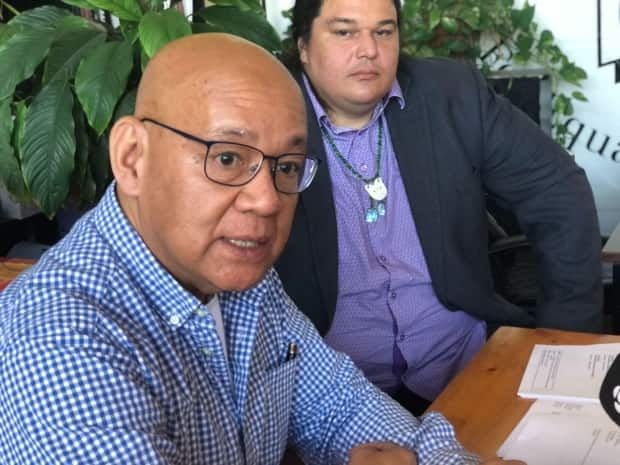Insurance company discriminated against Abenaki man, Quebec human rights commission says

Quebec's Human Rights Commission has found that an insurance company discriminated against a former Parti Québécois MNA because he is Indigenous.
In October 2018, Alexis Wawanoloath, who lives in Odanak, an Abenaki First Nation reserve in central Quebec, said Industrielle Alliance refused to insure his car after he gave them his address.
The commission's investigation found that the company's computer system labelled files from applicants who live on reserves with a code, "RESIN." This feature would systematically prevent transactions from going through.
"When you're refused things like that, it makes you ask yourself, what your place is [in society]," said Wawanoloath, who in 2007 became the first Indigenous person to be elected to the National Assembly. "At that time, I was very sad, angry and confused."
He calls the decision a "partial win" for him personally but says he is disappointed that the commission did not further investigate the systemic nature of the case.
"The central subject of this matter is the systemic racism we saw in the insurance sector," he said.
He added the commission and the Autorité des marchés financiers said two years ago they would examine the systemic aspect of the case, but he has yet to hear anything about it from them.
The commission is asking Industrielle Alliance to pay Wawanoloath $10,000 for moral damages based on Articles 4, 10 and 12 of the Quebec Charter of Rights and Freedoms.
It also recommends that the company pay an additional $10,000 in punitive damages for unlawful and intentional infringement of his rights — an amount Wawanoloath finds insufficient.
"For a big company like Industrielle Alliance, it's a little slap on the wrist," he said. "It's not dissuasive… [which] is why punitive damages exist."
The ruling is not binding, but if the case goes to the province's Human Rights Tribunal, any decision there would be enforceable.
Industrielle Alliance did not respond by publication time.
'Redlining' in Quebec
According to the commission report, Odanak is one of five Indigenous communities where the company limits its services.
The reserve is less than one kilometre away from Pierreville, an Indigenous community that Industrielle Alliance serves without restrictions, the document says. It did not specify the four other Indigenous communities that were targeted. The report also shows that the company's practices disproportionately exclude people from Indigenous communities.

Fo Niemi, executive director of the of the Center for Research-Action on Race Relations, says this discrimination is a clear example of redlining — a discriminatory practice denying services to large populations of Black and Latino residents in the U.S. who live in specific neighbourhoods.
"We had hoped the decision would legitimize the concept of redlining in the financial services industry with this decision," Niemi said. "But the commission chose to remain quiet."
If this case goes to the Human Rights Tribunal, it will be an opportunity for Wawanoloath to raise this issue again, he said.
"This is about institutionalized colonialism, and it has to end industry-wide," Niemi said.
He added that he hopes Wawanaloath's actions will encourage more Indigenous individuals living in communities across Quebec to file complaints.
"We are talking about hundreds of people who can — and should — file complaints because their right to equality has been denied," Niemi said.


